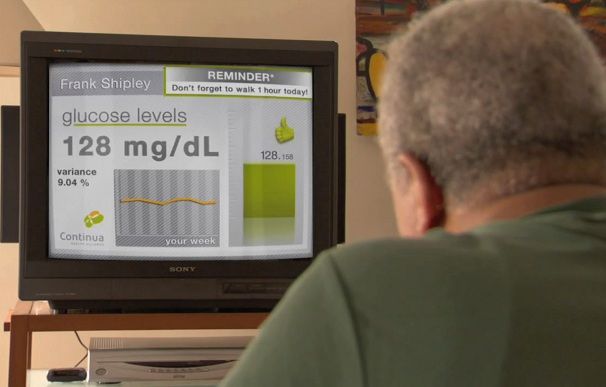Universal Standards Pushed for Smart Health Gadgets

Anyone trying to live a healthier lifestyle could soon share their health data automatically with their family, personal trainers or even physicians. That's because their blood pressure monitors, weight scales and perhaps even running shoes may send information wirelessly to their Internet-enabled smartphones and laptops.
But the interconnected swarm of diabetes monitors and exercise gadgets can become reality only if the devices can talk to one another. Connecting all those devices is the goal of the Continua Health Alliance, an umbrella nonprofit that aims to set universal standards for technology, medical device and health care industry leaders.
"In an ideal world, a device has the ability to interact with multiple resources," said Chuck Parker, executive director of the Continua Health Alliance. "It's not just the standalone systems like what we have today."
That ideal future world still looks a ways off, given that today's gadgets only work with specific systems or platforms. Nintendo's Wii Fit accessories for monitoring performance in exercise games only work on the Wii game console. The Nike+ accelerometer for runner's shoes only uploads data to Apple's iPods or iPhones.
Yet the Continua Health Alliance has assembled an impressive list of partners to make its connected vision happen. It includes tech giants that want to see a future world of smart cities and smart homes, such as IBM, Cisco and Microsoft. Medical device manufacturers Novartis and Roche have joined the alliance alongside health care providers like St. Jude Medical and Ascension Health.
Gaming for long life
But making health sensors and monitors able to connect with all smartphones, computers or even TVs is just half the battle for putting health data to good use. Ordinary consumers must also want to use such devices, and that's where gaming comes into play.
Sign up for the Live Science daily newsletter now
Get the world’s most fascinating discoveries delivered straight to your inbox.
Gaming devices such as Nintendo's Wii already use sensors for short-term health goals such as setting target heart rates . But Parker sees a chance for games to keep people committed to dealing with rehabilitation or chronic illness over months or years. He spoke recently at the Games for Health Conference in Boston on May 17.
"Games show great promise for motivating and engaging people over the long term," Parker told InnovationNewsDaily.
The health data collected during such gaming may simply give feedback to the personal user. But the Continua Health Alliance also wants people to have the ability to store data in a cloud-based online service, or perhaps update their online health records for health care providers.
Finding partners in health
Some health-oriented games exist, but Parker has yet to see medical devices that make good use of games. Still, some concepts exist, and countries such as Japan have moved further along in pushing such devices.
To prepare for that future, the Continua Health Alliance released two sets of guidelines over the past five years, and has a third set ready to go in the summer. It has also certified more than 40 devices that target health care providers and patients.
"What we've done is create standardized mechanisms for plugging into data, collecting data and passing it along," Parker said.
The big payoff for all that work could arrive when devices for consumers begin rolling out in 18 months, Parker said. Best Buy has discussed stocking such devices in its stores. And Google aims to make Android smartphones compatible with such devices by the end of summer.
Of all the major players, only Apple has held off on agreeing to make its devices compatible with the universal standards proposed by the Continua Health Alliance. But Parker still hopes that some devices can be made compatible with Apple's products.
"Do we need them at the table? Not necessarily," Parker said. "Would it be easier? Yes."
This story was provided by InnovationNewsDaily, a sister site to LiveScience. You can follow InnovationNewsDaily senior writer Jeremy Hsu on Twitter @ScienceHsu. Follow InnovationNewsDaily on Twitter @News_Innovation, or on Facebook.











